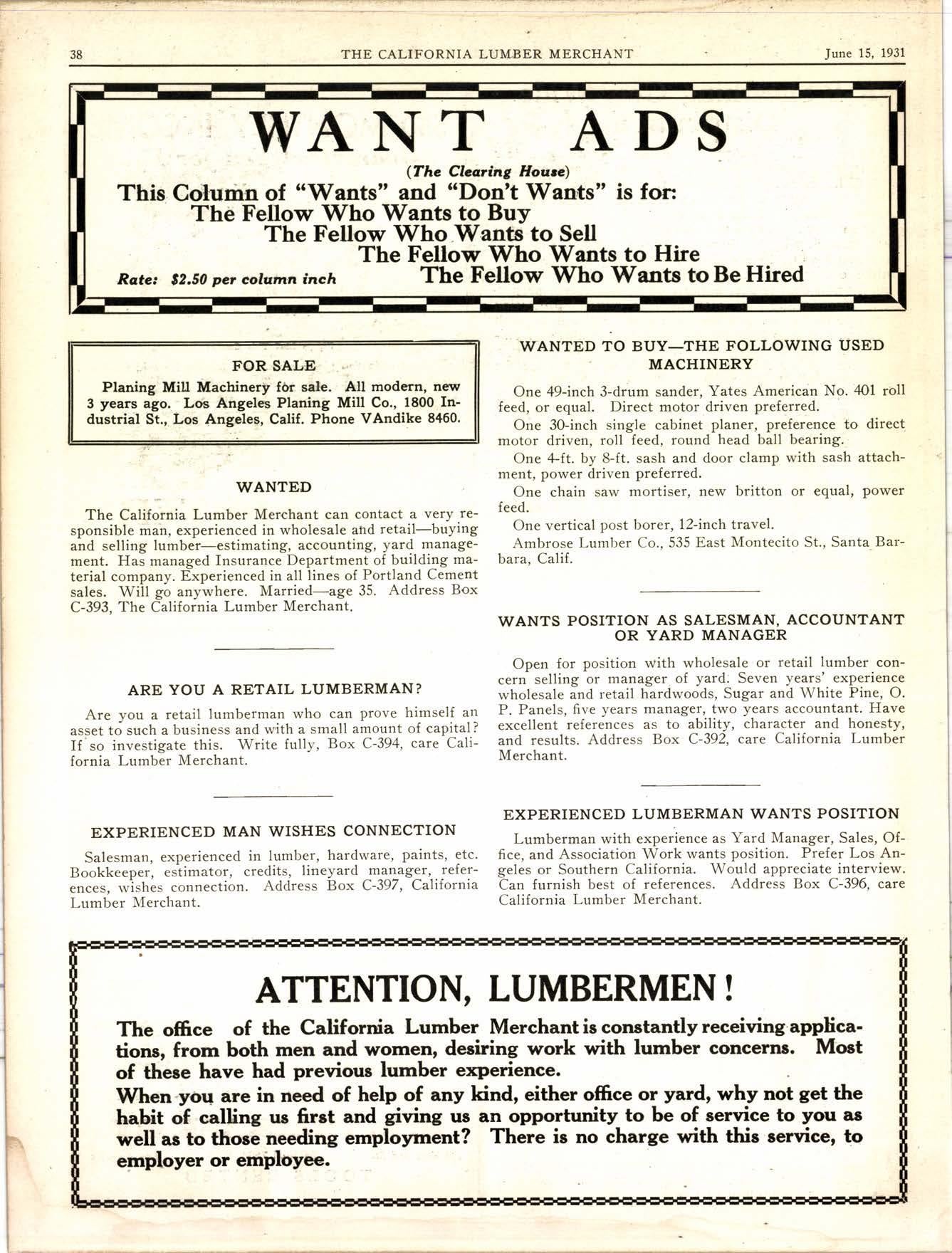
1 minute read
To Investigate Forest Tax Problem In Eastern Washington
Spokane, Wash., May 28.-At a conference of lumbermen, county, state and federal officials and others at Spokane, 'Washington, May 25, it was decided to investigate the forest tax problem in eastern Washington, with a vierv to taking ultimate action for preservation of forest resources. Fifty-three were in attendance at the meeting, representing Washington, Idaho, Montana and Oregon.
A committee to pursue the investigation will be appointed by R. L. Bayne, of the Weyerhaeuser Sales Company, Spokane, also chairman of the timber products bureau of the Chamber of Commerce.
This committee will include one representative from each county and one each from the following organizations: Chamber of Commerce, forest schools, private timber owners, cutover land owners, federal g'overnment, agricultural interests, grazing interests, county agricultural agents and sportsmen's associations. Other representatives will be included on the committee as the committee sees fit. The committee is to collaborate with north Idaho representatives of similar interests.
Opinions rvhich seemed to prevail with the majority of those present at the Spokane meeting were that private interests cannot afford to own reforestation land unless taxes during the growing period are merely nominal; that only the best lands can be held permanently by private interests; that much marginal forest land is not suitable for a lumber crop, but should be protected from fire to preserve water sheds, hold the soil in place, provide grazing areas, and for recreational areas.
That the state or federal government should permanently own the marginal forest lands and protect them; that no effort should be made to reforest for commercial uses every available acre, because there is not sufficient market for lumber.
It was agreed the present policy of the counties selling tax delinquent timber lands is bad. Such lands are purchased for the value of the second growth timber, the timber is cut, and the land once more is allowed to revert to the county. No taxes are paid on it and the only return the county gets is the small price paid at forced sale for the land. These prices in most cases are negligible.










